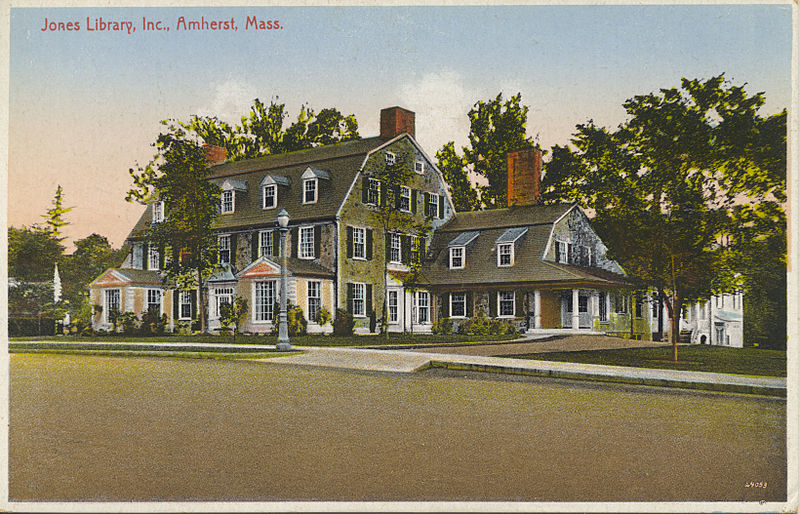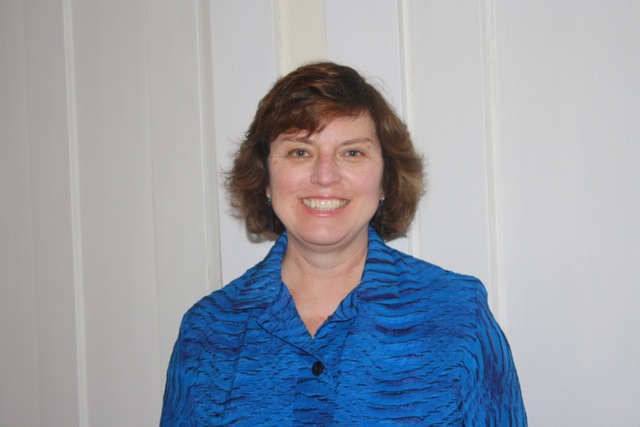OPINION: FINANCIAL REALISM REQUIRED FOR LIBRARY PROJECT

Jones Library. Photo: Wikimedia Commons

All of us want to reopen our economy after it is safe to do so, and we want our local businesses to weather this crisis and eventually thrive. Donating to local funds such the Downtown Amherst Foundation Relief and Resiliency Fund for micro-grants, sponsored by the Amherst Business Improvement District (BID), can help. However, a plan unveiled by the BID with the Amherst Chamber of Commerce to the Town Council on Monday, May 4th is neither reasonable or realistic.
Prior to the pandemic, these private organizations, in concert with Town Hall, unveiled their “Destination Amherst” initiative to the Town Council, which included advocacy for a new parking structure, a permanent performance space on the Common, improvements to the North Common and installation of a new playground at Kendrick Park. At the time, this proposal seemed excessive in the context of even a pre-COVID fiscal environment because taxpayers were already being asked to consider paying for four major capital projects including a new school, a new fire station, a new DPW headquarters and a demolition/expansion of the Jones Library.
It is shocking as economies are now teetering on the brink of a depression that the BID and Chamber would continue to promote the “Destination Amherst” initiative as well as all four capital projects. They also want the Town to fix sidewalks, power-wash streets, add signage, temporarily dispense with parking fees and make substantial changes in zoning bylaws and eliminate of the Design Review Board, among other requests. See the full presentation to the Town Council here.
During the Q & A, Councilor Andy Steinberg asked if “any project were more important to businesses than others?” BID’s Executive Director Gabrielle Gould asserted that post-pandemic, populations may migrate from cities to smaller towns such as Amherst and that the school and library would “attract young well-financed professionals.”
Almost all subsequent Councilor comments referred to the proposed Jones Library demolition/expansion project. Cathy Schoen reminded the Council that during the December listening sessions, support for a new school was high while support for the proposed library project was low. She added that the capital projects may have to be on the “back burner” without overrides and loans which will be difficult under current circumstances.
However, Steve Schreiber stated that the current library closure (due to the pandemic) showed a “great cultural divide” and may folks need the library for shelter, wi-fi and information. “We can’t accept the Jones the way it is” he said and he hopes that the town “seizes the opportunity” for partial state funding towards a $35.8 million project, not including interest. Alisa Brewer agreed that it is “not financially smart to only repair the Jones Library” and the public may agree “once the details are known.”
Of course, the library needs refurbishment, but not a huge, destructive and expensive project. Another way to look at the Jones closure is that it is providing an amazing array of electronic services and perhaps the way to solve the economic divide is to provide more laptops and hotspots for patrons. The schools have already done this by fundraising for students who need technology. Can’t the library do the same? Such client services do not require large spaces.
It is clear that once the public is presented with the details of the Jones demolition/expansion, people will realize that we don’t need to destroy 40% of the current building and expand it, particularly when many library programs duplicate other existing services in town such as school libraries, college and university libraries, Leisure Services, the Amherst Boy and Girls Club, etc.
Whether or not you subscribe to the “If we build it, they will come” rationale, our economic futures are suddenly unknown. How will the Town Council let the public, not just private organizations, weigh in on all our expenses? We need a formal survey.
Our elected officials have increased responsibilities because of the pandemic and wrenching fiscal decisions to make ‒ decisions that must meet the needs of all residents because all of us will pay for them.
Terry S. Johnson is a retired Amherst teacher, blossoming poet, and a lifelong student of art, architecture, history, and languages.

Thanks Terry this really hits the mark. It amazes me that the up-tick in foreclosures in Amherst that was already a point of concern prior to CV-19 doesn’t seem to factor into the decision making of many of the town officials. What is the rationale here? These projects will raise the already high taxes here and push more people out. That should matter to everyone. Shouldn’t it?